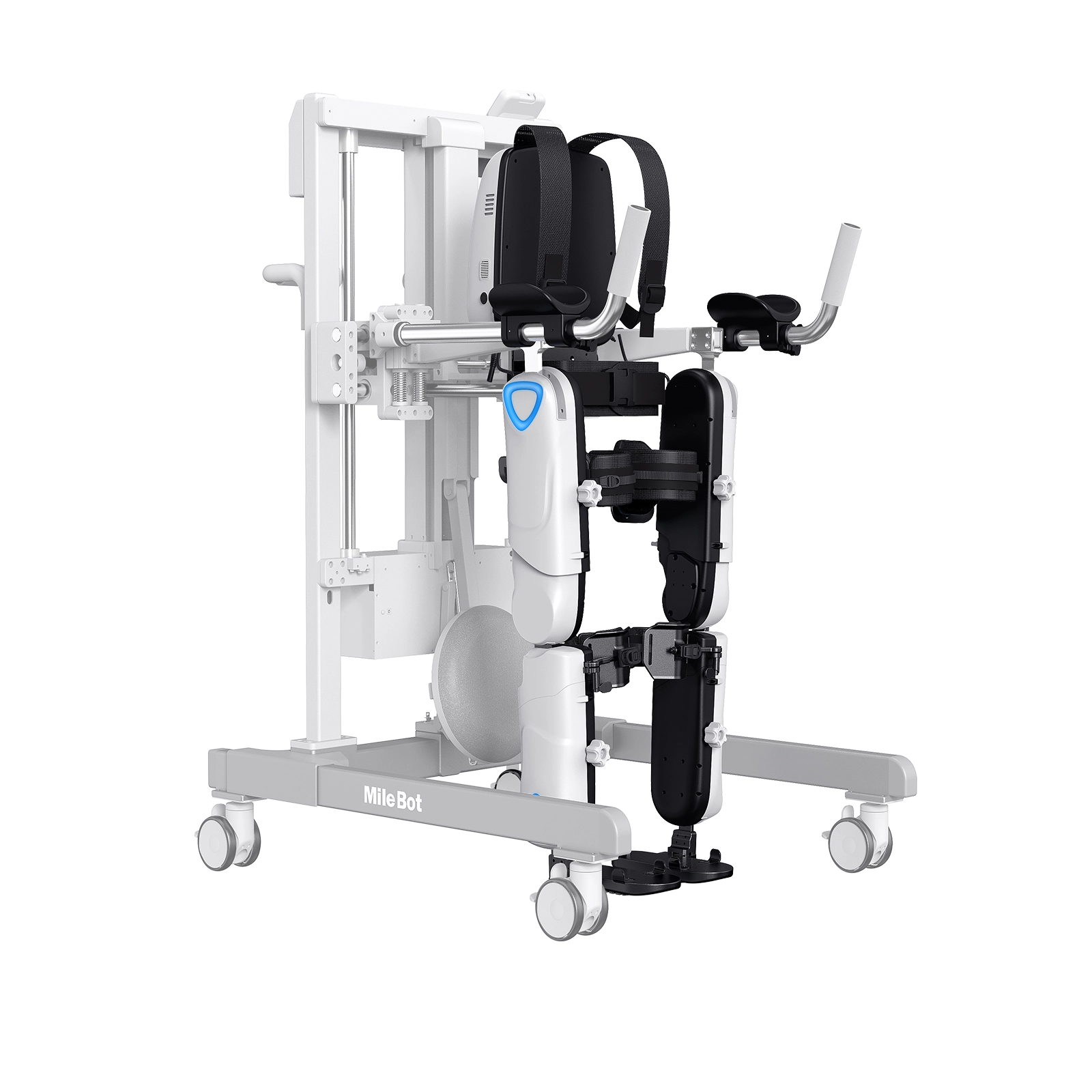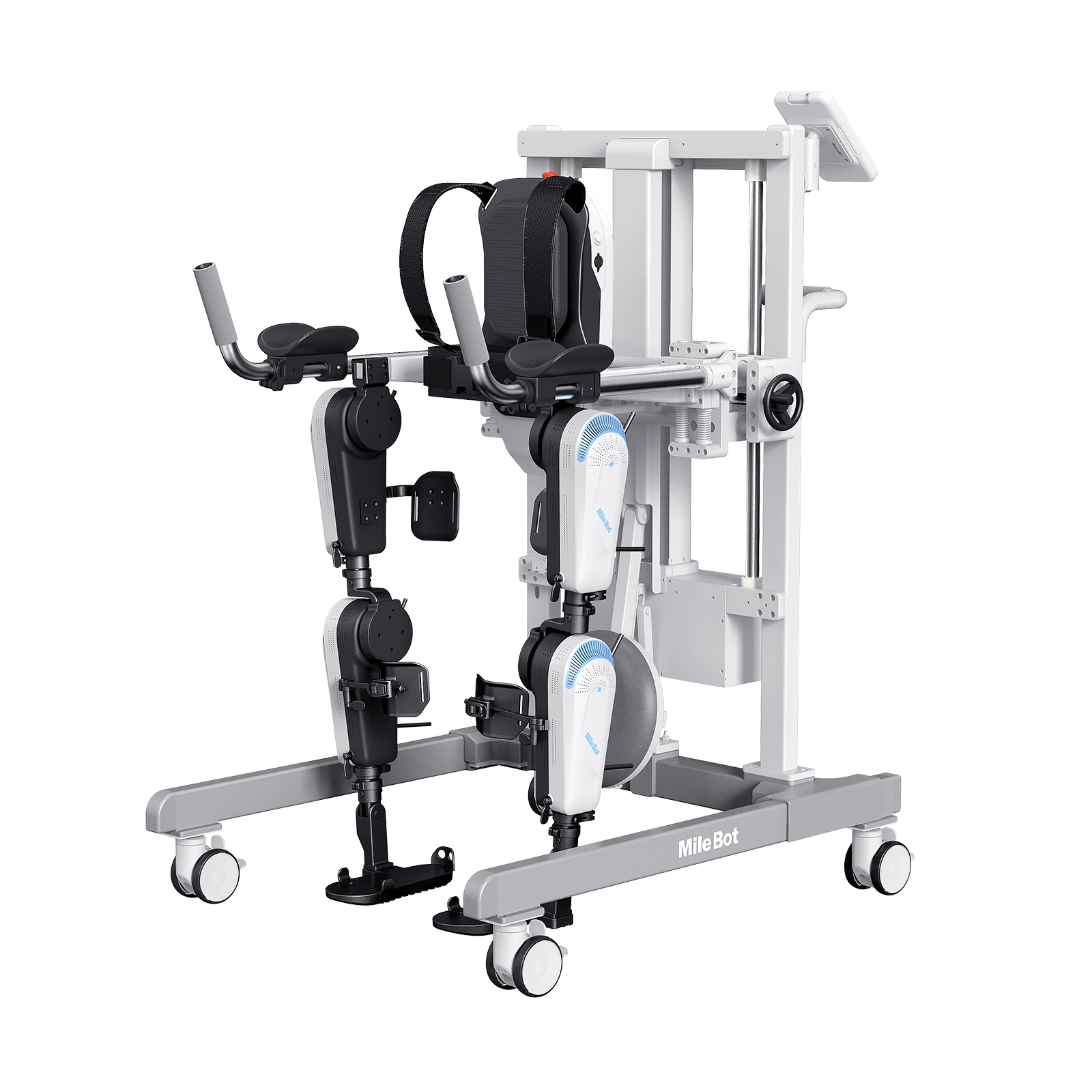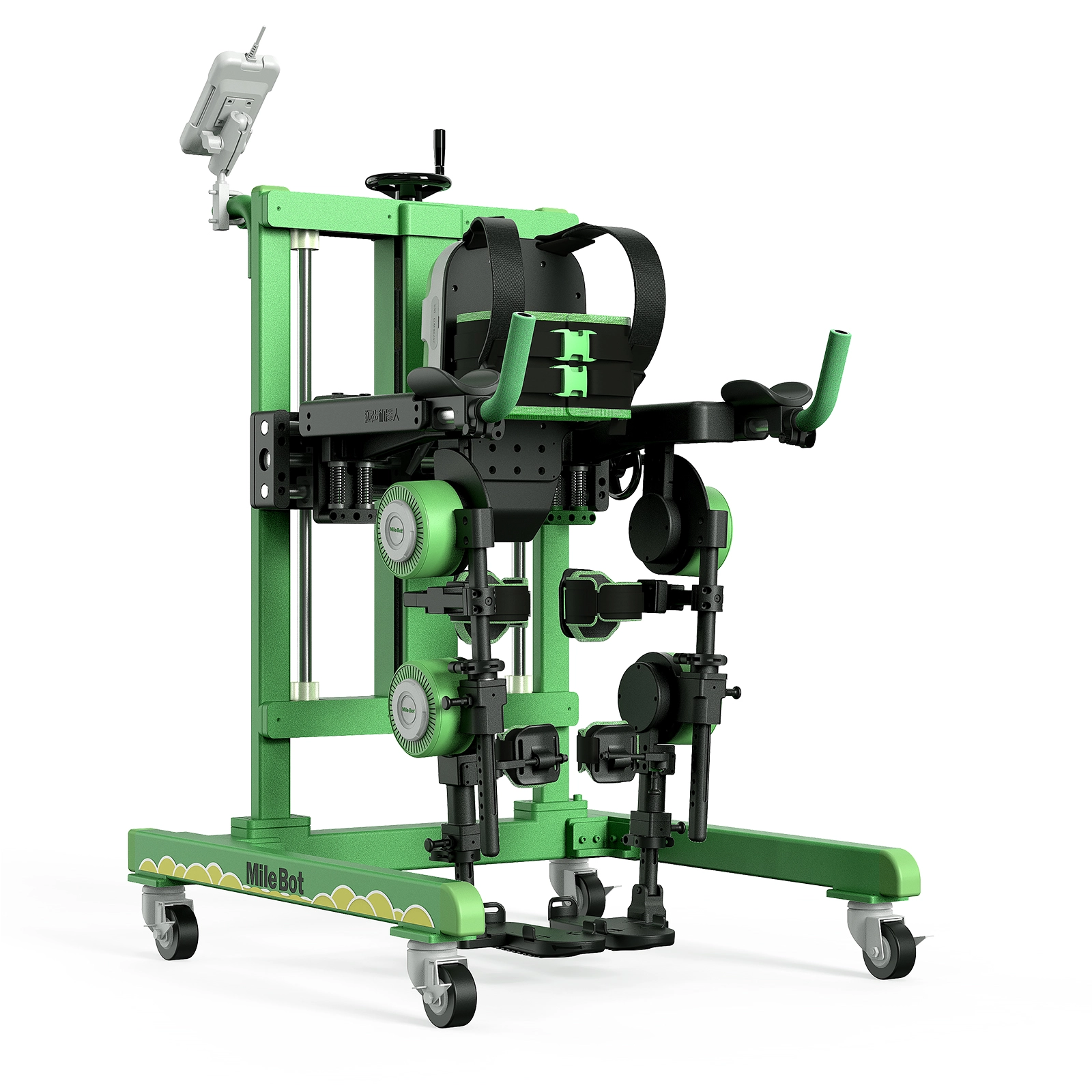MileBot Robotics provides cutting-edge rehabilitation solutions for Spinal Cord Injury. Our product lineup includes the Lower Limb Rehabilitation Robot BEAR (H Series), BEAR (A Series), RELAX (C Series), and Gait Assist Systems MAX (M and F Series). These devices are designed to enhance mobility and support recovery, offering personalized therapy to meet individual needs. Our advanced technology ensures effective rehabilitation, promoting improved quality of life and greater independence for patients.



Spinal Cord Injury (SCI) can result in significant loss of motor and sensory functions, severely impacting a person's quality of life. Traditional rehabilitation methods, while effective, often have limitations. This is where powered exoskeletons come into play.
Robotic exoskeletons, also known as walking exoskeletons, are wearable devices that support and enhance the user's natural movements. These devices are equipped with sensors, actuators, and advanced algorithms to assist in walking and other motor functions.
Robotic exoskeletons offer numerous benefits for SCI patients. They can improve muscle strength, enhance coordination, and promote neuroplasticity. Additionally, these devices provide psychological benefits by boosting confidence and independence.
The future of robotic exoskeletons in SCI rehabilitation looks promising. Ongoing research and development in medical robotics are expected to yield even more advanced and accessible solutions, further revolutionizing the field of neurological rehabilitation.

Spinal Cord Injury (SCI) can drastically alter a person's life, affecting their physical abilities, mental health, and overall quality of life. Understanding the challenges and exploring effective solutions is crucial for improving the lives of SCI patients.
Mobility Issues: SCI often results in partial or complete loss of mobility. This can make daily activities like walking, dressing, and bathing extremely challenging.
Chronic Pain: Many SCI patients experience chronic pain, which can be debilitating and affect their ability to perform everyday tasks.
Secondary Health Issues: SCI can lead to secondary health problems such as pressure sores, urinary tract infections, and respiratory issues.
Mental Health: The sudden change in physical abilities can lead to depression, anxiety, and other mental health issues.
Social Isolation: Reduced mobility and dependence on others can result in social isolation, further impacting mental well-being.
Powered Exoskeletons: These wearable devices support and enhance natural movements, making it easier for SCI patients to walk and perform other motor functions. They can significantly improve mobility and independence.
Neurological Rehabilitation: Advanced techniques in neurological rehabilitation, including robotic exoskeletons and virtual reality, offer personalized and effective therapy options.
Medical Robotics: Innovations in medical robotics are providing new tools for rehabilitation, from robotic arms to assistive devices that help with daily activities.
Mental Health Support: Counseling, support groups, and mental health therapies are essential for addressing the psychological impacts of SCI.
Support Systems: Family, friends, and caregivers play a crucial role in the rehabilitation process. Their support can make a significant difference in the patient's recovery journey.
Community Resources: Access to community resources, such as rehabilitation centers, support groups, and adaptive sports programs, can enhance the quality of life for SCI patients.
Spinal Cord Injury presents numerous challenges, but innovative solutions are making a significant impact. From powered exoskeletons and advanced neurological rehabilitation techniques to robust support systems, these advancements are helping SCI patients overcome obstacles and improve their quality of life. As research and technology continue to evolve, the future looks promising for those affected by SCI.
Both complete and incomplete spinal cord injuries can benefit, although the level of benefit may vary.
The frequency of use can vary, but many rehabilitation programs recommend several sessions per week.
Limitations can include the high cost, the need for supervision, and the physical condition of the patient.